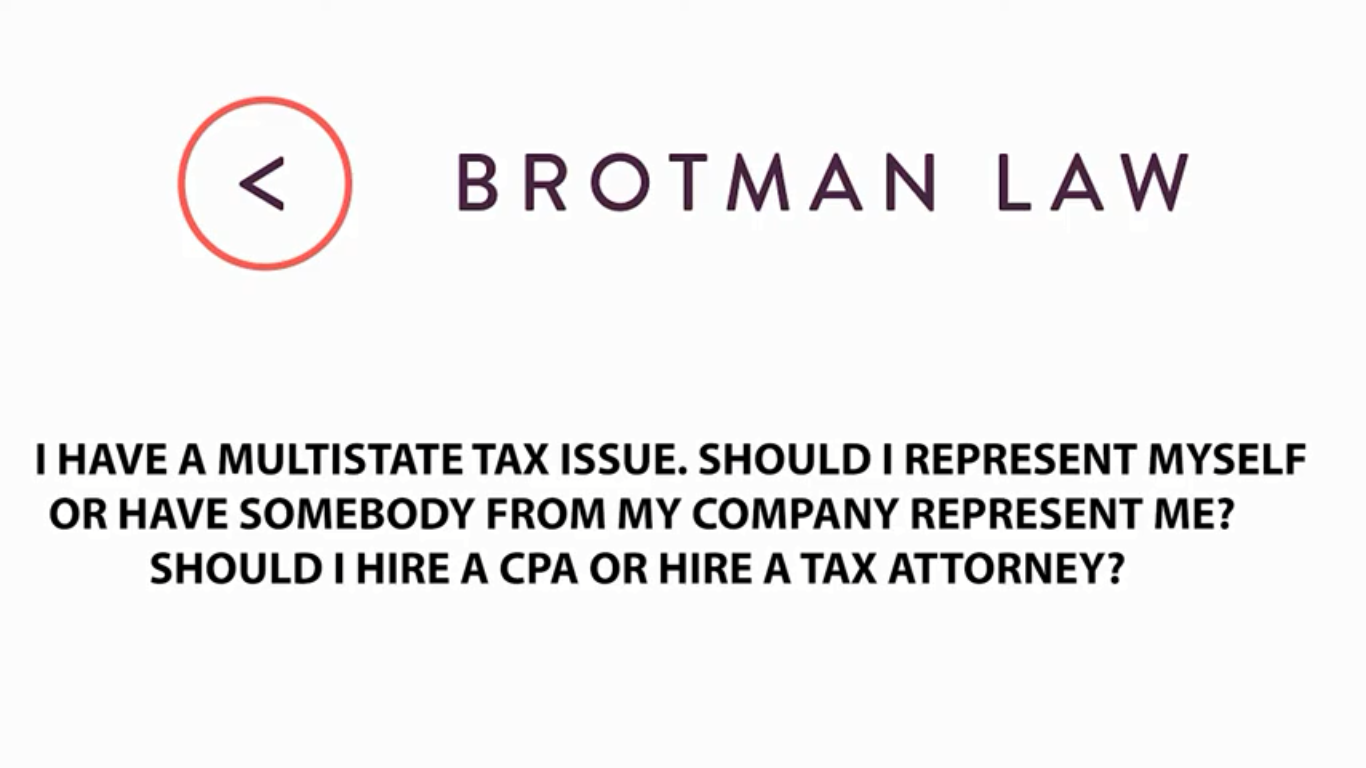Should I hire a CPA or should I hire a tax attorney? So the answer to that is it depends on what the situation is. That depends on the cast of characters on your team and what their level of experience is and it depends on how you want to solve the problem. So what I will say generally is with people within an organization and with CPAs, a lot of those people don’t have sufficient multi-state tax background. Just because I’m a tax attorney doesn’t mean I’m an estate planning specialist or I know a whole bunch about estate tax. It doesn’t mean I know a whole bunch about foreign transfer taxes. There’s a variety of things that are tax that are not in my wheelhouse as a tax attorney. Multi-state taxation is something that’s in my wheelhouse but the reason it’s in my wheelhouse is because I practice in this area of law and I do this all the time for clients who are multi-state businesses. A lot of CPAs and a lot of internal company people don’t have that level of experience so regardless of who you decide to hire, you want to make sure that you’re hiring somebody with sufficient experience to solve the problem. Now in a lot of cases, not all cases, but tax attorneys generally cost more than CPAs. We usually bill out at a higher rate so it’s also important to assess the problem and determine what solution you need. If it’s a simple reporting issue and you have a good multi-state CPA, that person might be the most appropriate person to handle it. Alternatively if you’ve got somebody in your company who has run a multi-state tax department or who has a background, you’re probably better handling it in house but the problem with multi-state taxation is it’s not just about the law. The law is complicated because you’re dealing with multiple jurisdictions. It’s about the procedure and it’s about how states handle collections and enforcement action against taxpayers that are outside of their jurisdiction and it’s about understanding the playing field. On the landscape of that, oftentimes what I usually recommend is a multi-prong approach. I’m a big believer in efficiency for companies so what I tell them is look, engage with the tax attorney, figure out what the strategy is and then outsource the execution of that strategy to where it makes the most sense. So a lot of multi-state clients, for example with our firm, come in for consultations. They’ll sit down with me, we’ll go through 60 or 90 minutes and we’ll develop a strategy and then they walk out of the office or hang up the phone and we’ll take that strategy to their internal people or to a CPA and help them execute it. So when making this decision, you want to make sure that whoever you’re going to have lead the team has the appropriate level of experience and then try and subdivide the work among who it makes the most sense to. Some people prefer to have our office handle everything and that’s okay but what I try and do for our clients is promote efficiency and really it’s about spreading and dividing labor between those three buckets of people on your team and doing what makes the most sense for your organization.
